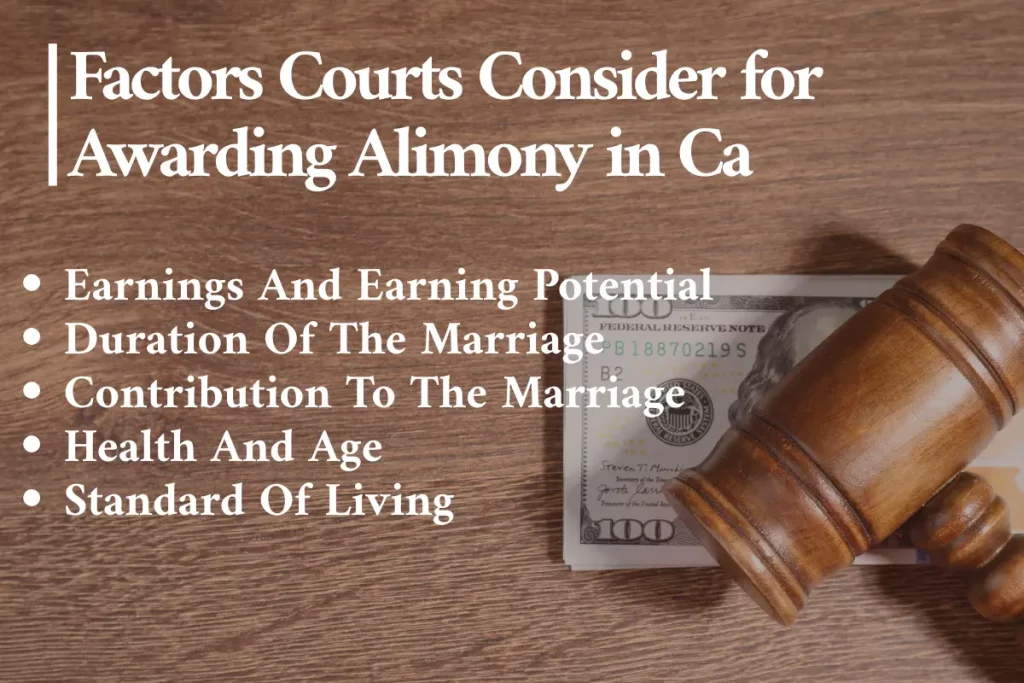Providing Divorce Mediation Services Throughout California
Providing Divorce Mediation Services Throughout California
Home » Divorce and Family law Blog » How Long Must You Be Married for Alimony in California? (2025)

Dina Haddad and her team provide expert mediation services for Californians. If you want help related to any family law issue, call us or book a consult.
Spousal support can be a headache where you have to figure out answers to complex questions like how long do you need to be married in California in order to qualify for spousal support?
The answer isn’t straightforward since there are multiple factors the law considers before giving its verdict.
This includes the duration of marriage, financial situation, and more. It’s a complex process and Dina Haddad at Families First Mediation is here to outline all you need to know about how your marriage duration affects spousal support.
Book a FREE divorce mediation consult with California’s expert alimony mediation lawyer, Dina Haddad to know how long you must be married to get alimony in California.
When it comes to alimony in California, the determining factor for the duration of payment is whether it is temporary or permanent.
It is permanent because it is difficult to modify the amount in the future unless you have a significant change of circumstances.
According to California Law, marriages lasting less than 10 years are classified as short term marriages.
As a general guideline, spousal support for short term marriages should not exceed the duration of the marriage by more than half.
For instance, if the marriage duration is 8 years, spousal support will be limited to 4 years. This guideline is based on the California Family Code, which aims to provide limited financial assistance until the recipient is able to sustain themselves.
It is a common myth that after a decade-long marriage, spousal support is guaranteed for life. This is not true, as there are many other underlying factors.
While it is plausible that the court may continue to hold jurisdiction for spousal support on long term marriages, there are few situations that have spousal support forever.
It depends entirely on the case, each situation is different and so the court takes multiple deciding factors as stated in the California Family Code.
California law considers a marriage lasting 10 years or more a long-term marriage. For such unions, there is no set rule regarding the duration of spousal support.
Rather, the court assesses what is reasonable considering the circumstances of your situation. California Family Code 4336 states that the court has enduring jurisdiction over the spousal support order which means the court has the power to modify it as it sees fit and whenever necessary.
A lot of long-term marriages come with distinct difficulties especially in the case of gray divorce (divorces later in life).
Many such couples aren’t in or nearing retirement and the earned income is less than when they were working. This will impact the amount and length of support.
The court considers both parties’ finances, the duration of the marriage, and their relative contributions during the marriage.
From this information, the court is able to ascertain the amount and length of alimony to be paid.

Key Factors Judges Consider include:
All these factors, together with other ones detailed in California Family Code 4320, are the basis for decision making for the judges.
Spousal support isn’t set in stone. The law does permit you to cancel or relax alimony in some circumstances. Here’s how:
The courts may not award spousal support if you are able to demonstrate that your spouse does not have the need for spousal support.
One way to show this is by demonstrating that your spouse is self-supporting. This is one of the many methods on how to avoid Alimony in CA.
Altering the terms of alimony is usually permitted when there is adequate proof of loss of income or other financial difficulties.
An application for reduction needs to be accompanied by sufficient proof as required by law.
Changes in employment, health condition, or financial wellbeing after a court has ordered alimony can be enough to request for a modification.
This request will involve providing supporting evidence to file a motion that will then be granted if sufficient.
High and complex assets can complicate decisions for spousal support.
Court will take into account the standard of living during the marriage, contribution made towards the union as well as the needs of both spouses.
Some factors that determine how long you will continue to pay or receive alimony include:
Also note that prenuptial or postnuptial agreements can significantly impact the duration and amount of spousal support.
California alimony disputes are something that can be quite stressful, however, with proper planning put into place, they can be resolved in a more efficient manner. Here’s how:
If you have not researched already, consider looking into Spousal Support Mediation services with Dina Haddad.
Most importantly, talking to a family law attorney will help you recognize the strategies you can utilize to reach a fair solution within the boundaries of California law.
For the most part, understanding California spousal support laws and navigating through them can be quite the task unless you know what to do.
That being said, whether your marriage was long or short in duration, there are helpful pointers you can rely on.
If personalized help is something you are after, then make sure to schedule a FREE Spousal Support Mediation Consult with Dina Haddad, spousal support mediator. The team is more than happy to assist.
You may qualify for alimony if you show a financial need and your spouse is capable of supporting you.
Factors such as the duration of the marriage, your contribution, and the ability to earn income are often considered.
California is a community property state, which means assets acquired during marriage are usually divided equally, or in this case, 50-50 is given irrespective of how long the couple has been married.
Alimony, however, is determined in a different manner.
Yes, even after a short-term marriage, it’s possible to get alimony, although the duration of support is typically capped at no more than half the length of the marriage.
Alimony is typically half the duration of the marriage for short-term marriages. In long-term marriages (more than ten years), it’s up to the court’s discretion and the details surrounding the case.